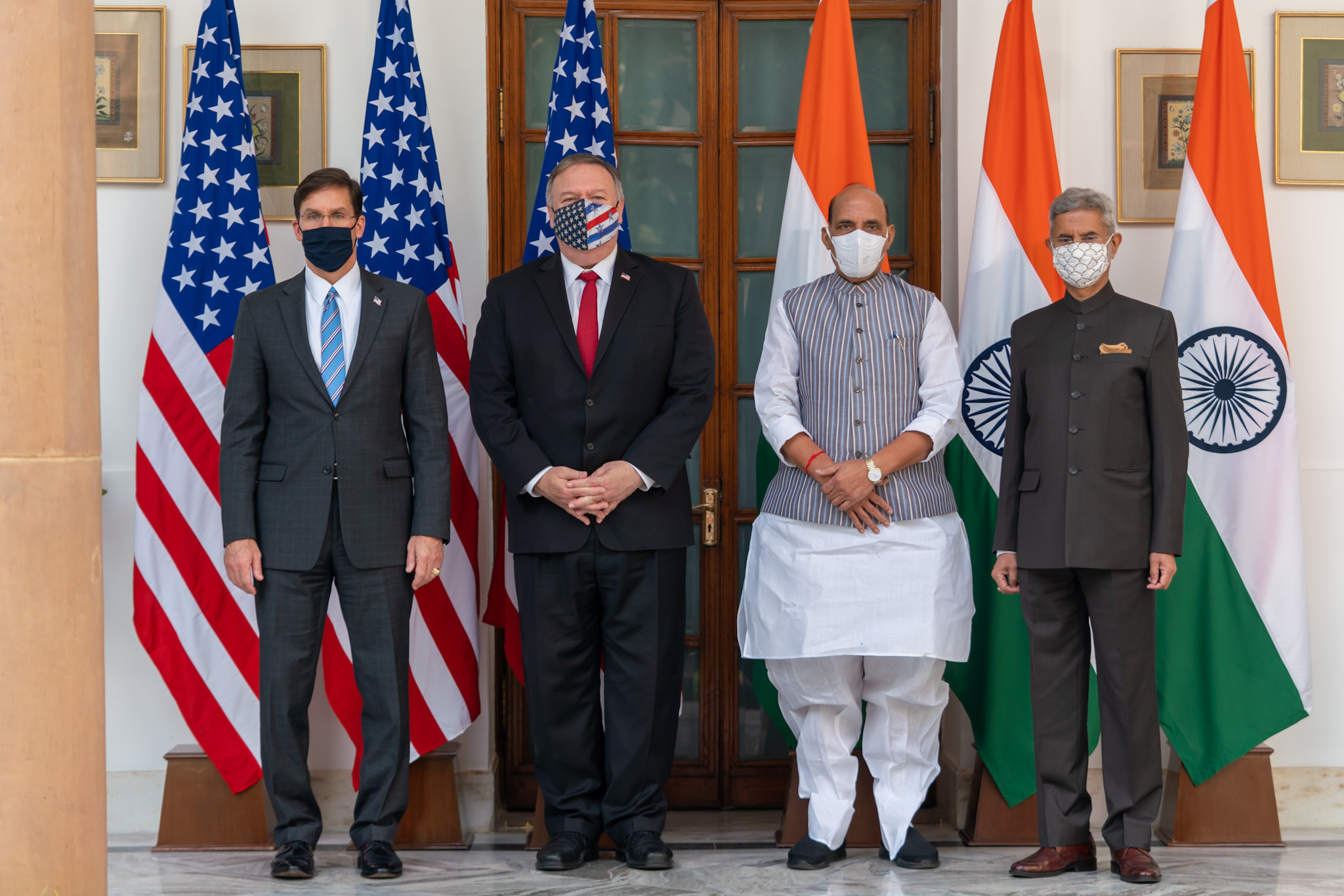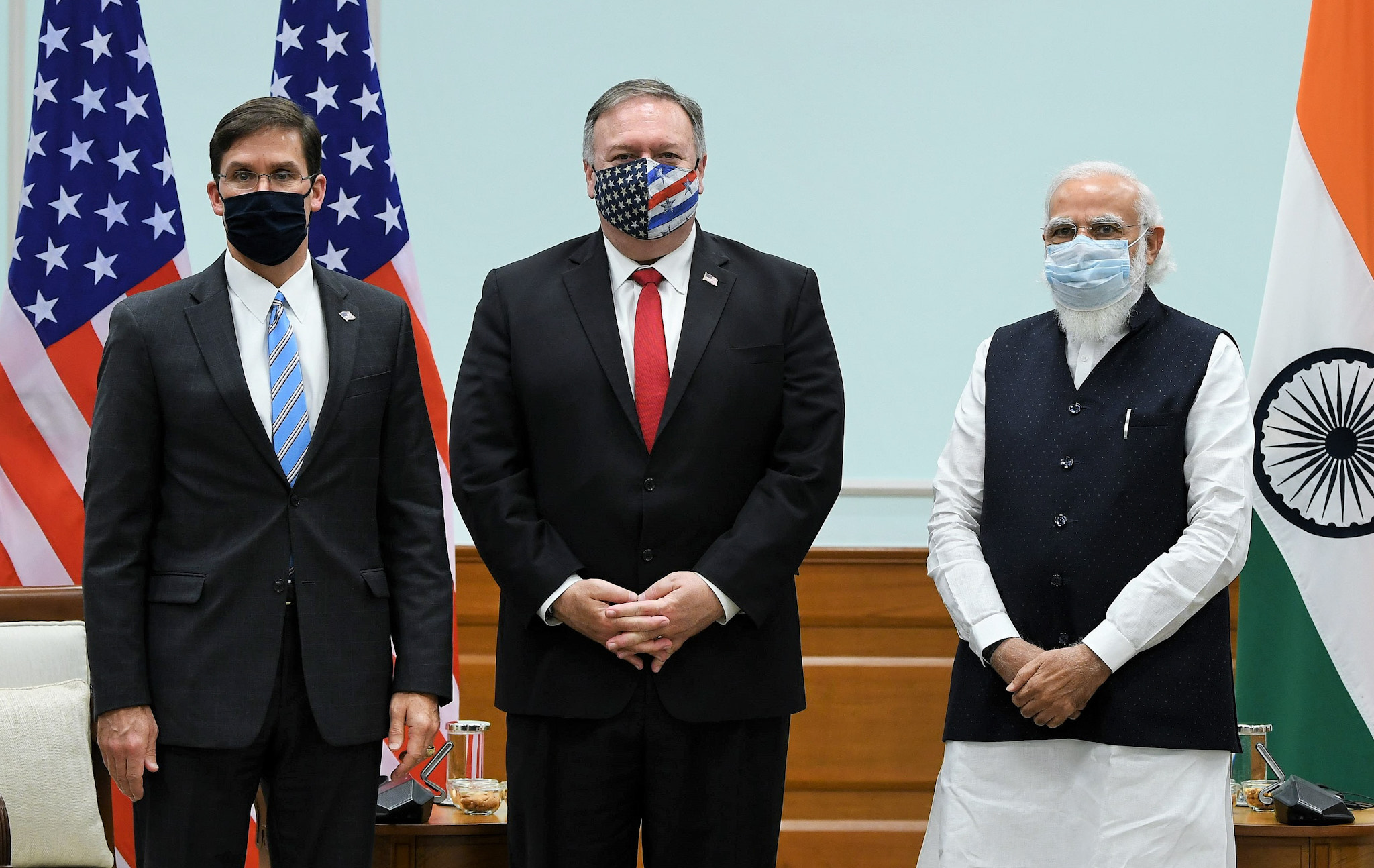US Secretary of State Mike Pompeo and Defence Secretary Mark T Esper concluded their trip to India by signing a landmark agreement and a joint statement against China.
The duo called on Prime Minister Narendra Modi as well and conveyed the American government’s continued interest in building stronger relations with India as well as discussed several issues of regional and global concern.
Indian External Affairs Minister S Jaishankar, Defence Minister Rajnath Singh, National Security Advisor Ajit Doval and US Ambassador to India Ken Juster were also present during the meeting.
The growing strategic convergence between India and the US also saw the two sides finally inking the landmark Basic Exchange and Cooperation Agreement (BECA) that will enable the sharing of geospatial maps and classified satellite data between the armed forces of the two countries.
It’s the fourth foundational military pact inked between India and the US and it comes at a time when its troops are locked in a stand-off with the Chinese PLA in eastern Ladakh.
They also released a joint statement asking Pakistan “to take immediate, sustained and irreversible action to ensure that no territory under its control is used for terrorist attacks, and to expeditiously bring to justice the perpetrators and planners of all such attacks, including 26/11 Mumbai, Uri, and Pathankot”.
The main focus during the meetings remained on China, with both sides alluding to the six-month border conflict in Ladakh and the COVID-19 pandemic that spread from Wuhan.
Pompeo said, “The challenge of defeating the pandemic that came from Wuhan also fed into our robust discussions on the Chinese Communist Party. Our leaders and our citizens see with increasing clarity that the CCP is no friend to democracy, the rule of law, transparency, nor to freedom of navigation—the foundation of a free and open and prosperous Indo-Pacific.”
The joint statement found mention of the South China Sea, stating, “the Code of Conduct in the South China Sea should not prejudice the legitimate rights and interests of any nation in accordance with international law”.




